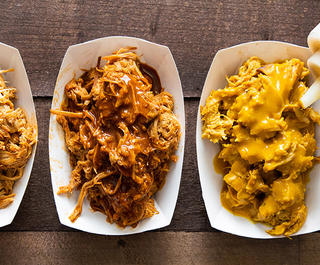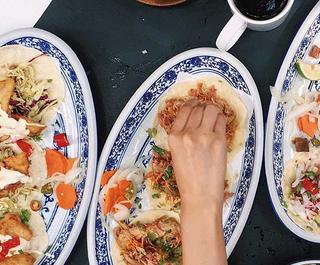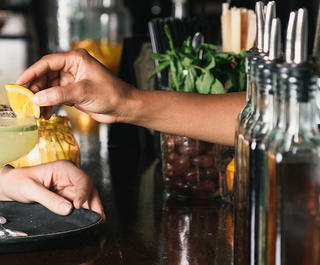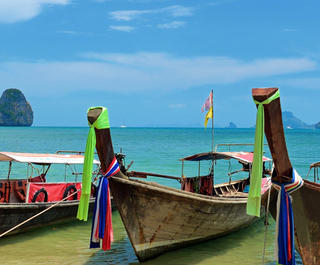
Malaysia is a nation of fabulous food and is also developing a reputation as a street-food heaven, making it a must-visit destination for any self-respecting foodie. And what’s more Malaysia has a number of cities jostling for recognition as its food capital.
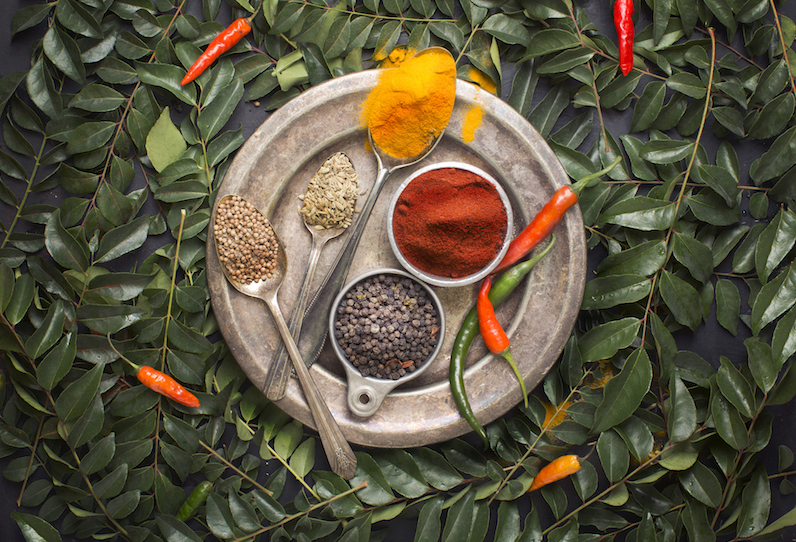 Malaysian spices – a mix of all its neighbours; best flavours. (Image courtesy of Getty)
Malaysian spices – a mix of all its neighbours; best flavours. (Image courtesy of Getty)In Malacca (a South Western state of Malaysia), the main cuisine is Nyonya – which blends Chinese ingredients with various distinct spices and cooking techniques used by the Malay/Indonesian community. This gives rise to Peranakan interpretations of Malay/Indonesian food that has similar sweet, salty, sour and spicy flavours. In other instances, the Peranakans have adopted Malay cuisine as part of their taste palate, such as Assam fish and beef rendang.
Banana Leaf Rice
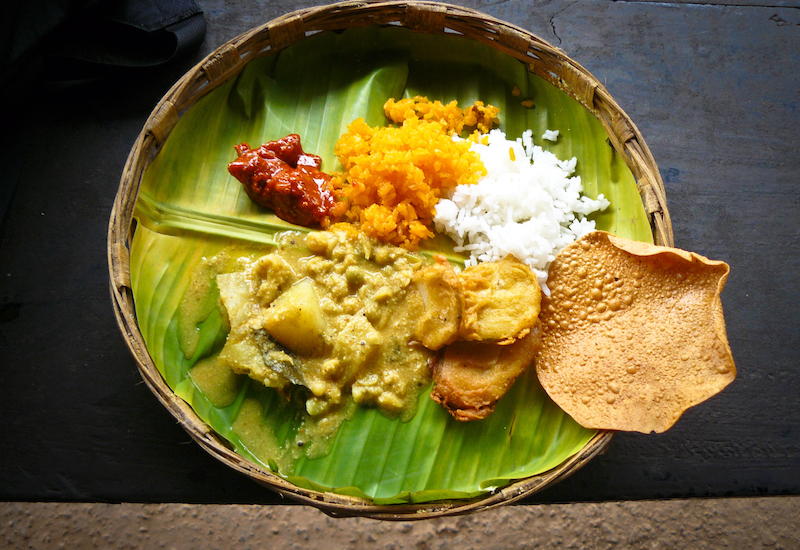 Banana Leaf Rice – a mix of spicy textures and flavours on a verdant green plate. (Image courtesy of Getty)
Banana Leaf Rice – a mix of spicy textures and flavours on a verdant green plate. (Image courtesy of Getty)Malaysia’s capital Kuala Lumpur has a number of dishes that demonstrate influences from the country’s neighbour, India. Chettinad cuisine is the cuisine of the Chettinad region of Tamil Nadu state in South India. The main dishes include satay Kajang and banana leaf rice. In banana leaf rice, white rice is served on a banana leaf with an assortment of vegetables, curried meat or fish, pickles, and the super addictive papadum ( look like giant, round, flat crisps).
Hokkien Mee
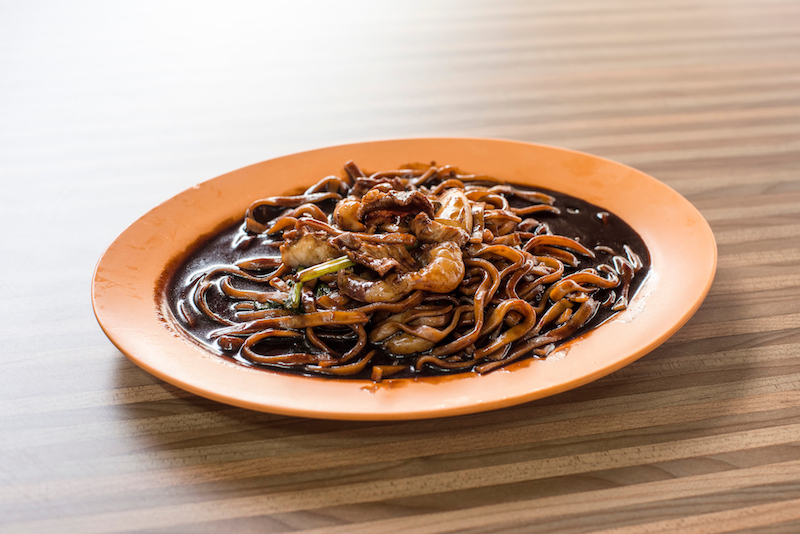 Hokkien Mee – what is a little bit of pork lard between friends. (Image courtesy of Getty)
Hokkien Mee – what is a little bit of pork lard between friends. (Image courtesy of Getty)Another KL favourite is the Fried Hokkien mee (Chinese style- fried yellow noodles). It is a dish of thick yellow noodles braised in thick dark soy sauce with pork, squid, fish-cake and cabbage as the main ingredients and cubes of crispy fried pork lard as garnishing (that would be the square cubes that you see on top of the noodle).
Sang Har Kwey Teow
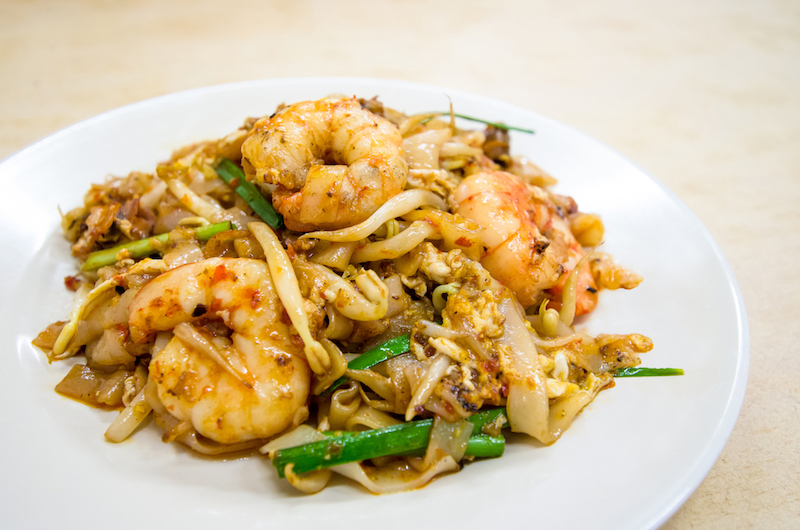 Thick, thin, flat, round – noodles know no bounds in Asian cuisine. (Image courtesy of Getty)
Thick, thin, flat, round – noodles know no bounds in Asian cuisine. (Image courtesy of Getty)Still in the noodle family, is the Sang Har Kwey Teow (flat noodles). This dish is made with river prawns cooked Cantonese style in a thick egg broth, and finished off with either flat or egg noodles. This amazing dish has a distinctive flavour and blends interesting textures of the prawns and the flat noodles - these two ingredients an unlikely but perfect pair.
A two-hour trip from the capital takes you to Malaysia’s third largest city of Ipoh, known for its signature dishes – like sar hor fun (silky rice noodle soup) and salted chicken – washed down with the iconic Ipoh white coffee.
Assam Laksa
 Assam Laksa – an Asian hearty soup. (Image courtesy of Getty)
Assam Laksa – an Asian hearty soup. (Image courtesy of Getty)Then make your way north to Penang for its world-famous Assam laksa, but save some room for other dishes like the Sarawakian (or Kuching) Laksa, is a delicious but different take on the popular laksa dish. And then there is Nasi Kerabu, a dish popular in states like Kelantan and Terengganu, which is served with a vibrant blue-coloured rice.
Nasi Dagang
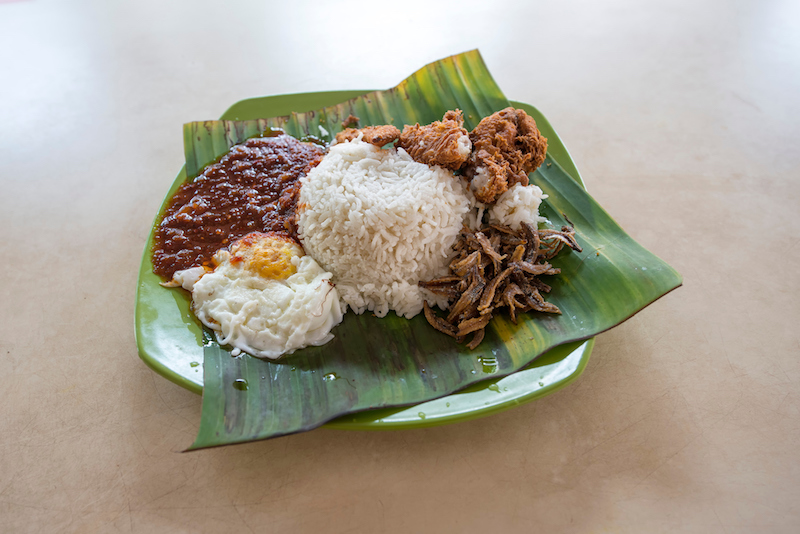 Nasi Lamel, signature dish of the region. (Image courtesy of Getty)
Nasi Lamel, signature dish of the region. (Image courtesy of Getty)Over on the Eastern areas of the country, Nasi dagang is another great tasting dish, consisting of rice steamed in coconut milk, fish curry and extra ingredients such as fried shaved coconut, solok lada, hard-boiled eggs and vegetable pickles. It is a common breakfast food throughout the country states on the East Coast of Peninsular Malaysia, such as Terengganu and Kelantan. The most famous Nasi dagang of Terengganu comes from a place called Kampung Ladang, an area within the Kuala Terengganu district. Literally translated as “meat bone tea”, this unique dish consists of fatty pork ribs simmered in a broth of herbs and typical Chinese spices (including star anise, cinnamon and cloves). However, additional ingredients may include offal, mushroom varieties, choy sum and tofu.
So why not head to Asia’s Noodle Bowl where your taste buds will have a holiday of a lifetime, and you can try a myriad of incredible Malaysian dishes without ever having to ask for Nasi Goreng (the Emperor or the dish), or about the reason behind the construction of the Great Wall of China – which as everyone knows, was to keep out the rabbits.
Visit your local Flight Centre store or call 131 600 for more advice and the latest deals on travelling to Malaysia





